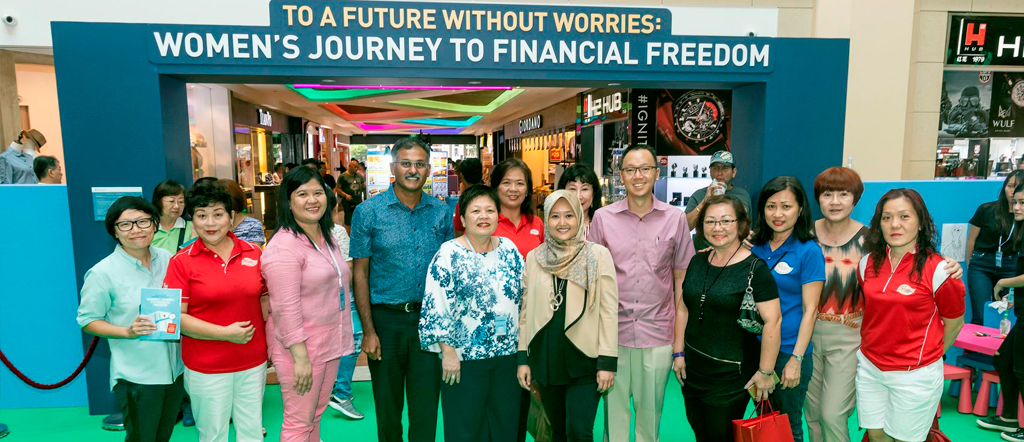
Longevity is one of the greatest achievements of the last century. Why look at it only as problem, burden and costs?

About ILC Singapore
ILC Singapore (ILC-S) aims to promote the wellbeing of older people and contribute to national development through initiating research and forging collaborations which inform policy, facilitate policy-action translation and promote quality, effective practice in Singapore and the region.
Developed from the Foundation’s Inter-agency Collaboration Unit, ILC-S came into being in September 2009 when it joined the prestigious International Longevity Centre Global Alliance. The mission of the multi-national consortium is to help societies address longevity and population ageing through research and action.
ILC-S forges community development programmes, working with elders and other stakeholders to find innovative and effective approaches to issues in population ageing. Among these are the Citi-Tsao Financial Education Programme for Women, to address the financial vulnerability of women whose life expectancy outstrips that of men’s. Another titled “Self Care on Health of Older Persons in Singapore (Project SCOPE)” empowers elders with the information and skills to improve self care and health seeking behaviour. Both programmes have research components to test their efficacy. For greater impact, their design allows for local as well as regional implementation.
In terms of policy-relevant research, ILC-S has identified six areas for investigation: healthy ageing, social isolation, caregiving, long-term care financing, older women and financial security, and self-care in health management among older persons. Some of the studies have been spearheaded by the Tsao Foundation-National University of Singapore Ageing Research Initiative. The first publication, “A Profile of Older Men and Older Women in Singapore 2011” has been released. With such information, ILC-S intends to present evidence-based report briefings and surface critical issues which have policy implications. It already contributes to the public service’s understanding of Singapore's demographic trend and impact through participating in the Civil Service College Strategic L.E.A.D Programme.
The Tsao Foundation has a long tradition of working with global agencies involved in improving the quality of lives of older persons. For instance, since 1997, the Foundation has been a member of HelpAge International, an international NGO serving disadvantaged older persons. Our President, Dr MaryAnn Tsao, was its Chairperson from 2001 to 2003. She has also worked with various United Nations agencies on ageing related programmes, and participated in drafting the Plan of Action for the UN's Second World Assembly on Ageing, held in Madrid in 2002. ILC-S takes forward this engagement with international stakeholders and expertise, and brings it home, partly by organising conferences and roundtables locally to stimulate critical thinking and approaches to the diverse impact of global ageing.
Through its synergistic relationship with the Foundation's other initiatives in community geriatric services, training, and public education, and its own slate of activities, ILC-S is uniquely positioned to join the dots between community, practitioners, academia, enterprise and policymakers, to help address the challenges and actualise the opportunities in longevity.
Programmes
ILC-S programmes respond to the needs of older persons and population trends, while forging links between community, enterprise, research and policy.
Research, Reports & Viewpoints
Through policy relevant research and evidence-based proposals, ILC-S advocates for the interests of older persons to be included in mainstream policy planning.
Global Partnerships
Since its establishment, Tsao Foundation has been developing a network of international partnerships to learn from and contribute to the global response to unprecedented population graying.
Issues in Population Ageing
A selection of significant studies done on ageing in Singapore, and internationally, are featured in this section.

